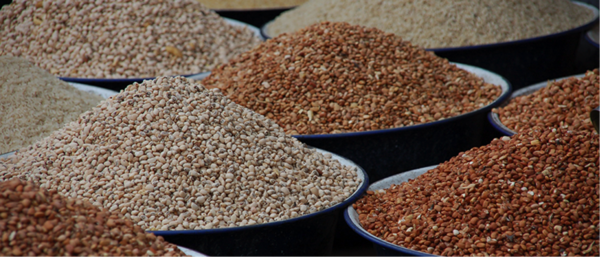- Share this article
- Subscribe to our newsletter
Nigeria approves biotech cowpea for cultivation
Following more than two decades of research, field trials, and risk assessment by multiple organisations, on the 29th January, the Nigerian Biosafety Management Agency (NBMA) approved the commercial release of the resulting genetically modified cowpea to farmers in Nigeria, placing the country on the path to becoming the first country ever to cultivate biotech cowpea. This development adds a new crop to the global biotech basket from Africa.
NBMA’s approval allows the Institute for Agricultural Research (IAR) to commercially release Pod Borer-Resistant Cowpea (PBR Cowpea) – event AAT709A, genetically improved to resist Maruca vitrata. The release provides a relief to millions of Nigerian farmers who depend on cowpea for food and income, as well as to the consumers of cowpea.
Cowpea is an important staple crop in sub-Saharan Africa, serving human consumption needs while providing a good source of quality fodder for livestock. However, cowpea farmers face a challenge with a traditionally low yield factor due to its susceptibility to many insect pests at different stages of its production lifecycle. As a result, if farmers want to get a good yield they need to apply multiple insecticide sprays during the course of the production in the fields.
Biotech cowpea resistant to the Maruca vitrata pod borer
One of the most damaging insect pests that attack the cowpea plant is the Maruca vitrata, commonly called the maruca pod borer, which causes 70- 90 per cent yield loss for farmers. Due to high costs and, sometimes, unavailability of suitable insecticides, many cowpea farmers resort to harmful cotton insecticides to spray cowpea fields. This has unfortunately led to significant numbers of intoxication and deaths.
Along with other research partners, the International Institute of Tropical Agriculture (IITA) in Ibadan/Nigeria, which has cowpea as one of its mandate crops, decided to focus on developing an improved cowpea variety that would be resistant to maruca. To achieve this, more than 15,000 cowpea varieties in the IITA germplasm bank were evaluated for resistance to maruca.
Giving an overview on the project, IITA Legume Geneticist and Breeder Christian Fatokun stated that the researchers also evaluated wild relatives of cowpea, and although a gene from one of the species called Vigna vexillata was identified to be resistant to maruca, crossing this to cowpea proved unsuccessful.
With the lack of success of conventional breeding for resistance, the collaborators on the project decided to adopt a biotech approach that would result in genetically modified cowpea.
Previous research using the bacterium Bacillus thuringiensis (Bt) to confer resistance in maize crops had proved quite successful, and some of the Bt gene strains have been found to be resistant to maruca.
With genes provided by Monsanto and initial phases of product development conducted at the Commonwealth Scientific and Industrial Research Organisation (CSIRO) in Australia, significant milestones were achieved in developing cowpea lines expressing the Bt (Cry1Ab) gene that confers resistance to maruca pests.
The successes graduated to confined field trials (CFT) which were conducted successfully at the IAR in Zaria/Nigeria.
Results from the research have shown that Bt cowpea will reduce the use of pesticides from eight sprays per season to about two targeted sprays and increase yield by up to 20 per cent. This means that Nigeria will record a revenue increase of more than 48 billion Nigerian Naira (USD 132 million) annually from cowpea. Extensive safety studies have shown that the Bt cowpea is safe for both human and livestock consumption.
(IITA/wi)
For more information:
Website of the International Institute of Tropical Agriculture (IITA)





Add a comment
Be the First to Comment